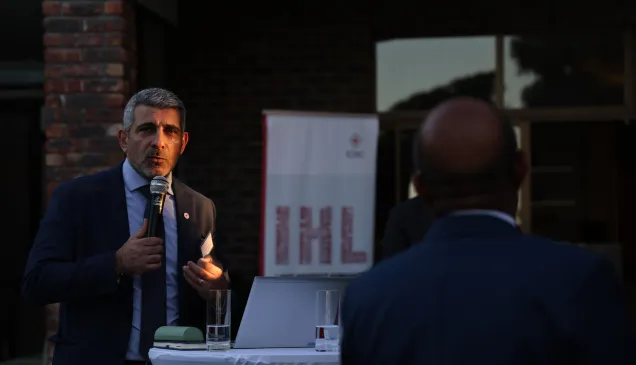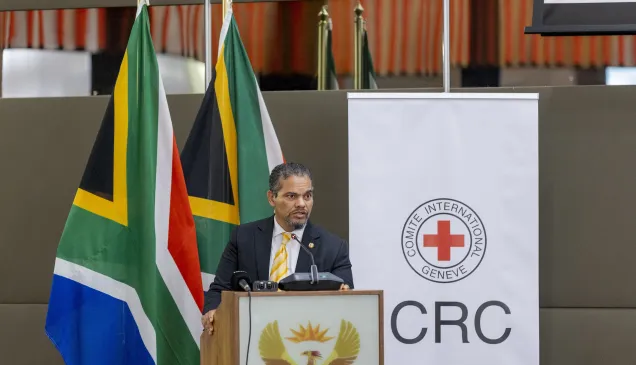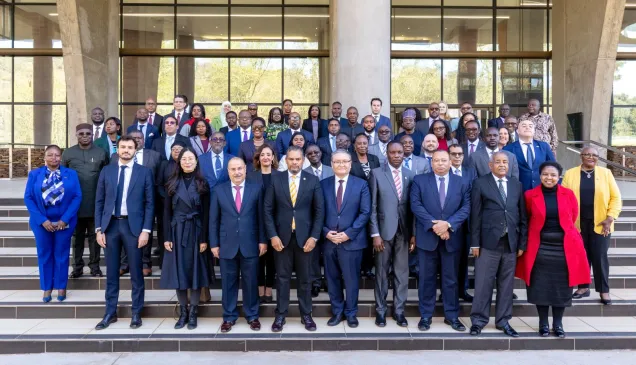South Africa: Addressing medicolegal issues
On 12-14 June 2023, The ICRC’s African Centre for Medicolegal Systems (ACMS), DNAforAFRICA and United Nations Office on Drugs and Crime (UNODC) jointly hosted the 3rd DNA Symposium in Cape Town, South Africa. The event was held in a hybrid format and attended by over 120 participants, including government, civil society, academia, and forensic experts from Africa and beyond. The DNA Symposium has become an annual platform for experts and a host of organizations to share information and knowledge on medicolegal systems in Africa.
Launched in Pretoria in October 2022, the ACMS is coordinated by the ICRC Pretoria Regional Delegation with a network of organizations. It has been at the forefront in calling on African states to consider DNA databases and other search methods to facilitate the identification of missing or deceased persons due to armed conflicts, other situations of violence and disasters.
Speakers discussed the importance of DNA databases for African countries to advance search and identification that can help families know the fate of their missing loved ones.
Supporting a call for African countries to establish DNA databases, Dr. Aaron Amankwa, a research scientist in forensic biometrics, genetics, and biology at the University of Northumbria in England, believes that starting off with the laws, policies and regulatory framework will make it easy for DNA profiling to work in countries where it is not currently present.
Stephen Fonseca, Head of the ICRC's ACMS, stressed the need to put families and communities at the forefront of humanitarian forensic efforts. During the Conference, he reminded participants that it is not only civilians who go missing during armed conflicts, but also soldiers and other weapon bearers involved. He encouraged military institutions to collect basic data before deploying troops, as many of them only begin the collection process after mass casualty events.
The symposium has reaffirmed the activities of the ICRC’s ACMS as a platform and a convenor for medicolegal issues in Africa. The ACMS supports ICRC’s work in relation to missing persons in Southern Africa, placing families at the center of efforts to solve cases of their missing loved ones.



